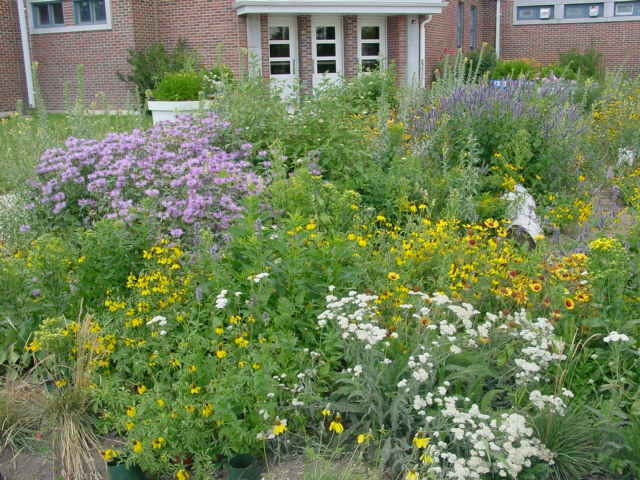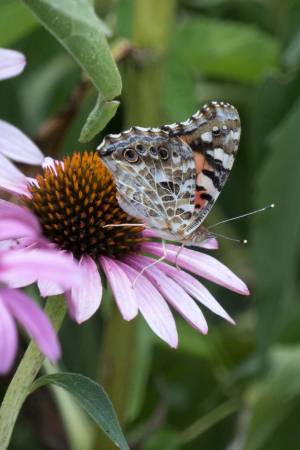Planting Natives in Johnson County and the Kansas City Metro
What is a native plant?
There can be many definitions of a native plant. Native plants are those evolving naturally without the influence of man. They are well adapted to a local ecosystem having formed a beneficial relationship with wildlife.
Why plant natives?
Native plants have many benefits over non-native species. Native plants are well adapted to the climate, soil and moisture patterns. Most importantly they support beneficial species such as nectar, pollen and seeds for the diverse population of butterflies, insects, birds and many other animals.
How can natives be utilized?
Use natives in gardens just like any non-native species. They work well in flower gardens adding a richness in diversity. Native gardens can range from small to large. The best design is one that incorporates native plants blooming from spring through fall and also have winter attributes, thus supporting our beneficials year round.
Getting Started with a Native Planting
This series of videos walks you through the steps of establishing a new native planting.
- Starting a Native Garden
- Soils for Native Gardens
- Planting a Native Garden - Seeds or Plants?
- Designing a Native Garden
- Planting a Native Garden
- Weed Control in a Native Planting
- Mulching a New Native Garden
- Watering to Establish a New Native Garden
- Drip Irrigation - Watering for Establishment
Native Gardens Resources and Fact Sheets:
- Landscaping with Native Plants
- Native Plants for Northeast Kansas
- Milkweed for the Garden
- Creating a Butterfly Habitat
- Tropical Milkweed, Good or Bad?
- Establishing Native Grasses
Information on Pollinators:
- Create a Habitat for Stem-Nesting Bees
- Native Bees of Kansas
- Pollinators and Beneficial Insects, K-State University
- Pollinator Protection Starts at Home
- Protect our Pollinators by Delaying Spring Cleanup
- Time to Re-Think Fall Leaf Cleanup
- Yearly Maintenance Calendar
Gardening for Wildlife:
- Creating a Butterfly Habitat
- Creating an Urban Backyard Wildlife Habitat
- Gardening for the Birds
- Guide to Butterfly Gardening Resources
- Hummingbirds
- Milkweed for the Garden
- Pollinator and Beneficial Insects
- Solitary Bee Nesting Boxes

Johnson County Cost Share Program for Establishing Native Gardens
Supported by Johnson County Government, you may be eligible for funding for planting a native garden or implementing other strategies to protect water quality. through the Contain the Rain program. Most Johnson County cities are eligible. Every city runs their own program, so be sure to verify if your city is eligible and still has funds available and how to apply.
-
Details about the Contain the Rain program
Additional Resources on Establishing Native Gardens
Here are some of the best resources of our local climate.
- Planting Natives in Northeast Kansas is a comprehensive resource of utilizing natives from a larger prairie setting to a backyard garden. Complete with recommended plants and sources.
- Deep Roots Kansas City
- Grow Native Missouri Program
Do You Have Questions?
Have questions? The Garden Hotline is staffed by trained EMG volunteers and Extension staff who will assist you with questions. Phone: (913) 715-7050 Email: garden.help@jocogov.org